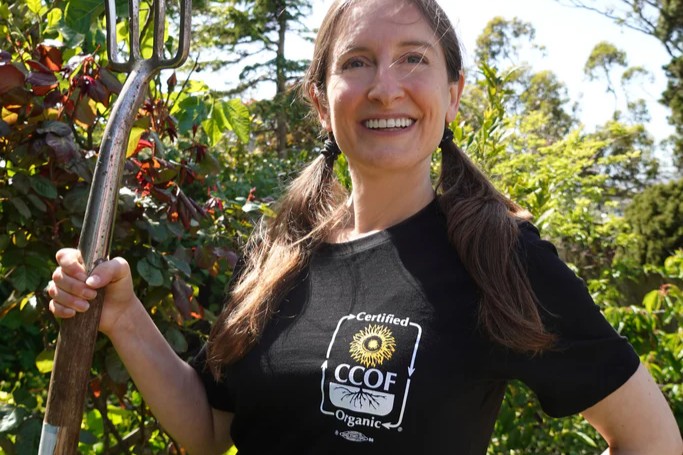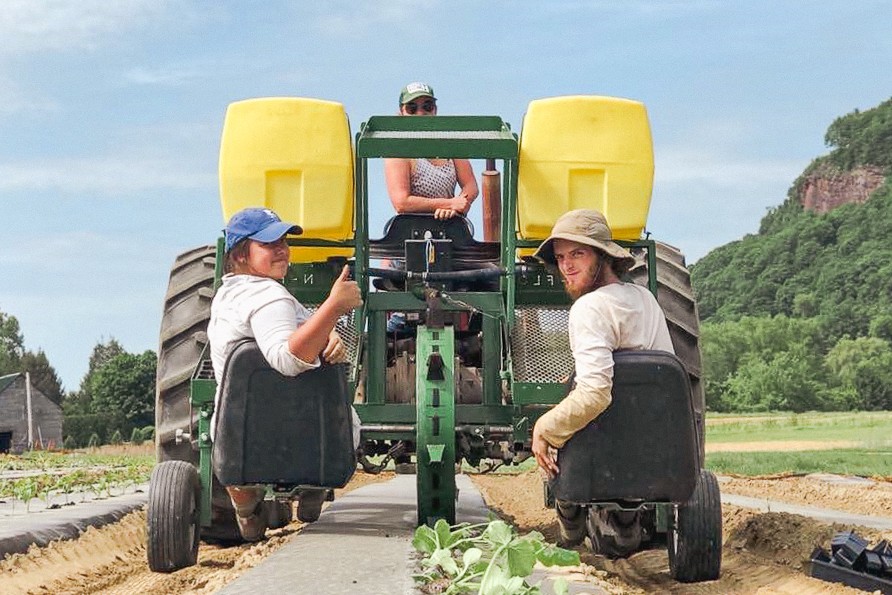CCOF was founded with 54 grower members for the purpose of defining organic standards and certifying organic growers. All CCOF operations were run out of founder Barney Bricmont’s Santa Cruz, California, home; his dining room was the office, with the dining table acting as a desk.
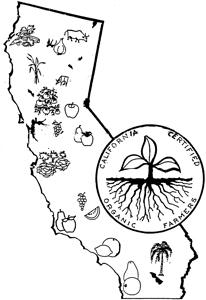
CCOF’s first newsletter, The California Certified Organic Farmer, was published. The back cover of the newsletter detailed the “CCOF Standards of Farm Certification” – at only 13 rules long, they were much simpler than the standards organic producers must meet today!

CCOF’s first chapter, the Central Coast chapter, was formed, marking the beginning of the region-based CCOF Chapter System.
The California Organic Food Act (COFA) of 1979 was signed into law, legally defining organic practices in California, but making no provisions for support or enforcement. Any infractions had to be taken up in the courts by organizations like CCOF.
Mark Lipson was hired as CCOF’s first staff member.
The first CCOF office space, located in downtown Santa Cruz, California, was 80 square feet and had only one telephone.
CCOF published the first edition of the CCOF Certification Handbook and Materials List and the first Farm Inspection Manual, and conducted the first series of farm inspector trainings.
Bob Scowcroft was hired as CCOF’s first executive director.
CCOF celebrated 15 years of certifying organic, featuring “Our Story So Far: CCOF Marks 15th Anniversary” in the CCOF newsletter.
In cooperation with the California Department of Health Services, CCOF pursued an investigation into organic fraud by a distributor that had been selling conventionally-grown carrots as organic. CCOF Executive Director Bob Scowcroft wrote, “I believe that others looking back at the history of organic agriculture will treat the Pacific Organics case and CCOF’s role in it as an historic event. The resulting publicity made the State enforce the law and put into place programs to institutionalize that enforcement in the future.”
The infamous “Alar scare” caused people to question the use of dangerous chemicals in agriculture when CBS 60 Minutes aired a story based on a report by the Natural Resources Defense Council titled “Intolerable Risk: Pesticides in our Children’s Food.” Two weeks later, the “Chilean grape scare” prompted Newsweek and Time magazines to ask, “Is our food safe? Who can you trust?” For weeks following the 60 Minutes story, the phones at CCOF rang off the hook with reporters, retailers, and consumers all wanting to know where they could get safe, organically grown food. CCOF certified operations increased from 300 to 800 organic growers.
The CCOF office, located on the third floor of a six-story building in downtown Santa Cruz, California, was shaken up during the 1989 Loma Prieta earthquake and was demolished soon after. Mark Lipson recalls the event: “We only had a couple hours under police supervision to hustle out what we could salvage, all carried by hand down the fire escape still covered with glass from dozens of plate glass windows.”

After a 20-month marathon advocacy effort by CCOF, California passed the California Organic Foods Act (COFA) of 1990. Based on CCOF’s organic certification standards, COFA added enforcement to the existing state law. Third-party certification was still voluntary under this new law.
The Organic Foods Production Act (OFPA) of 1990 was completed as part of the U.S. Farm Bill and called for the establishment of the USDA National Organic Program (NOP) and National Organic Standards Board (NOSB), finally backing the “certified organic” claim with federal legislation.
The same year that COFA and OFPA passed, CCOF total operations increased 38 percent and total certified acreage increased 67 percent.
CCOF founded the Organic Farming Research Foundation (OFRF) to fund the educational objectives of CCOF and on-farm research of organic growing practices. Today, OFRF is widely recognized as a leader in the worldwide organic community. Learn about OFRF’s efforts to support organic information needs.
CCOF recognized that processed food made up half of the organic food industry and reached out to processors by creating its own organic processing standards. CCOF processor membership jumped from five to 19 in one year; prompting the addition of the Processor/Handler Chapter to the CCOF Chapter System.
The first draft of the National Organic Program (NOP) standards was released. To a shocked organic community, the “big three” – irradiation, genetically modified organisms (GMOs), and sewage sludge – were subtly incorporated into the rule. This issue generated the most comments the USDA had ever received; nearly 280,000 people nationwide wrote letters, emails, and faxes to contest their inclusion in the organic standards. Their actions ultimately paid off, resulting in the prohibition of the “big three” in the Final Rule of 2002.
The Organic Materials Review Institute (OMRI) was originally developed in the late 1980s by CCOF in cooperation with Oregon Tilth as a joint materials and testing program. With the impending implementation of the National Organic Program (NOP) rule, OMRI established itself as an independent organization in 1997. Today, OMRI is the primary organic materials review clearinghouse for the United States.

CCOF became accredited with the International Federation of Organic Agriculture Movements (IFOAM) to further serve CCOF members by offering access to European markets.
The CCOF Foundation was formed as a nonprofit 501(c)(3) organization to obtain grants that help educate the public and conventional farmers about the benefits of organic food and farming.
The National Organic Program’s “Final Rule” of organic standards was implemented nationally. Thanks to hundreds of thousands of public comments, the Final Rule no longer allowed the “big three” – irradiation, genetically modified organisms (GMOs), and sewage sludge – in organic agriculture.
The California Organic Products Act (COPA) of 2003 was signed into law. Starting in 2003, all products sold in California containing less than 70 percent organic ingredients would not be allowed to use the word “organic” on the front panel. However, later in 2003, the State Assembly repealed the nonfood provision of the COPA.
With final implementation of the federal organic certification standards under the NOP, the USDA determined that accredited certification agencies must be free from conflict of interest. This meant that CCOF certified members could no longer oversee the same certification program that certified their own businesses. A solution was found in the formation of a Limited Liability Corporation (LLC), separate from the member-directed CCOF, Inc., the politically active trade association. Non-certified members of the organic community now direct CCOF Certification Services, LLC, while the nonprofit, member-based CCOF, Inc. retains control of the name, seal, and budget. Learn more about the structure of CCOF.
The CCOF Foundation was formed to invest in the next generation of farmers, provide education to current and future organic professionals, and give hardship assistance to organic businesses in need.
As a member of the Californians for a GE-Free Agriculture (CGFA) coalition, CCOF fought the biotech industry head-on and won the battle to overturn the state’s decision to allow the planting of genetically engineered (GE) pharmaceutical rice containing human genes in California.
The CCOF Foundation ran the Go Organic program, which held over 60 in-person workshops across California and supported the transition to over 4,000 acres of farmland to organic.
The official USDA listings of certified operations in the United States revealed that CCOF was the largest organic certifier in the United States, certifying more than 11 percent of U.S. organic businesses.
The official USDA listings of certified operations in the United States revealed that CCOF was the largest organic certifier in the United States, certifying more than 11 percent of U.S. organic businesses.
CCOF certified acreage grew by more than 40,000 acres, or about 23 percent, from the previous year, with over 350,000 certified organic acres.
CCOF’s advocacy efforts against genetically engineered (GE) crops were successful in 2006. Santa Cruz County supervisors voted unanimously to adopt a moratorium on GE crops. Later that same year, SB 1056, a bill that would have revoked the right of local governments to impose bans on GE crops, failed to pass in the California Senate.
Going Organic, a project sponsored by the CCOF Foundation, spurred numerous meetings, OSP training sessions, and workshops, which helped hundreds of attendees learn more about organic production and certification.
CCOF reached a major milestone when we surpassed a half million certified organic acres in early 2008. By the end of the year, CCOF had grown by 11 percent and surpassed 2,000 total certified operations.
CCOF announced the appointment of its first full-time policy director, marking yet another landmark in the growth of the organization and demonstrating CCOF’s continued commitment to advocating for governmental policies that protect and promote organic agriculture.
Based on feedback from our members, CCOF worked to reform the California State Organic Program (SOP) by submitting an official complaint to the National Organic Program (NOP). In accordance with CCOF’s complaint, the NOP recommended that the SOP halt their spot inspection program immediately and the California Department of Food and Agriculture (CDFA) develop a Technical Planning Committee aimed to review and improve the SOP.
After tireless advocacy efforts, CCOF, along with partners in the Genetic Engineering Policy Project lobbying coalition, celebrated the passing of the Food and Farm Protection Act (AB 541) in California. This bill was the first to offer protection for farmers against lawsuits linked to genetically engineered (GE) crops.
CCOF launched a new Organic Liquid Fertilizer Policy, aiming to ensure that fertilizer companies undergo third party inspections or face prohibition of their products as well as a Fertilizer Sampling Initiative to test a variety of liquid fertilizers in the marketplace.
CCOF earned the Monterey Bay Area Business Program’s Green Business Certification, which recognizes and promotes businesses that volunteer to operate in a healthier way by meeting standards for conserving resources, preventing pollution, and minimizing waste.
After the finalization of the Canadian Organic Standards in 2009, CCOF received Canadian accreditation to ensure that CCOF members in the Global Market Access (GMA) program had access to the Canadian market.
Despite a national economic downturn in 2009, CCOF experienced 8 percent growth in both the number of certified operations and in total certified acreage. Certified operations increased from 2,007 to 2,168, while certified acreage increased from 558,137 to 603,545.
CCOF withdrew from IFOAM accreditation, but continues to offer EU Equivalency verification for European markets through our Global Market Access (GMA) program. Learn more about CCOF international programs.
After years in the making and input from interested parties and over 26,000 public comments, the National Organic Program (NOP) finally published the “Pasture Rule” and received an overall positive response from the organic community. CCOF analyzed, interpreted, and made comments on the new rule to help producers get a better understanding of the changes and how they would be affected. Find information and resources about the Pasture Rule.
CCOF reached a major certification milestone in 2011 when we certified our millionth acre, a 49 percent increase in certified acreage from 2010. A key area of growth was in organic pasture, which increased 89 percent from 2010 when the National Organic Program (NOP) published the final Pasture Rule.
CCOF formed a strategic alliance with the Organic Trade Association (OTA) to strengthen the organic industry’s national public policy effectiveness, enhancing the resources and capacity needed to grow and protect U.S. organic agriculture in the current fast-changing political environment.
CCOF created Future Organic Farmers, a collaboration between organic industry leaders that gives grants annually to K-8 teachers incorporating organic into their classroom instruction, National FFA Organization high school students completing an organic Supervised Agricultural Experience project, and students pursuing higher or vocational education in organic agriculture.
CCOF created the “Organic is Non-GMO & More” seal to support its certified members and to better communicate with consumers about the many benefits of organic. The seal underscores the prohibition of the use of GMOs in organic production and helps certified members avoid additional burdensome certifications.
CCOF was recognized by the Mexican government as an approved certification body under the recently implemented Mexican Organic Standards, becoming one of the first United States-based certifiers to reach this milestone.
CCOF sponsored the California Organic Food and Farming Act (COFFA), which was signed into law by Governor Jerry Brown on September 21, 2016. COFFA updated the California State Organic Program to cap fees, eliminate unnecessary paperwork for certified organic producers, and create a state framework that better supports organic farmers and businesses.
The CCOF Foundation published the Roadmap to an Organic California: Benefits Report. This groundbreaking publication reviewed over 300 scientific studies to analyze how organic agriculture impacts the United States, finding that organic provides evidence-based solutions to the nation’s most complex challenges.
Following up on the Benefits Report, the CCOF Foundation published the Roadmap to an Organic California: Policy Report, which takes inspiration from the benefits of organic to recommend concrete, science-backed steps we can take to promote health in our communities.
The CCOF Foundation gave away $500,000 to 100 farmers transitioning their land to organic through a partnership with Anheuser-Busch.
After a year of relentless challenges that included a global pandemic and record-breaking wildfires, the CCOF Foundation gave away $88,000 to organic farmers in need of financial support through the Bricmont Hardship Assistance Fund.
CCOF Certification Services launched three new certification programs: OCal cannabis certification—comparable-to-organic certification for cannabis in California; a Regenerative Organic Certified™ program; and Certified Grass-Fed Organic Livestock Program™ certification.
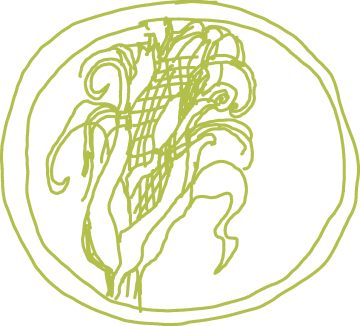


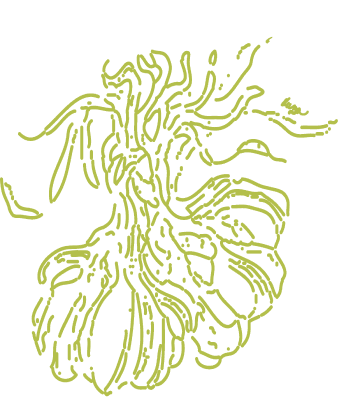



Featured News
Explore Resource LibraryConnect with Us
Mission, Vision, Values
Learn more about us and how we can help
About UsWhy Organic?
lorem ipsum
Why Organic?
